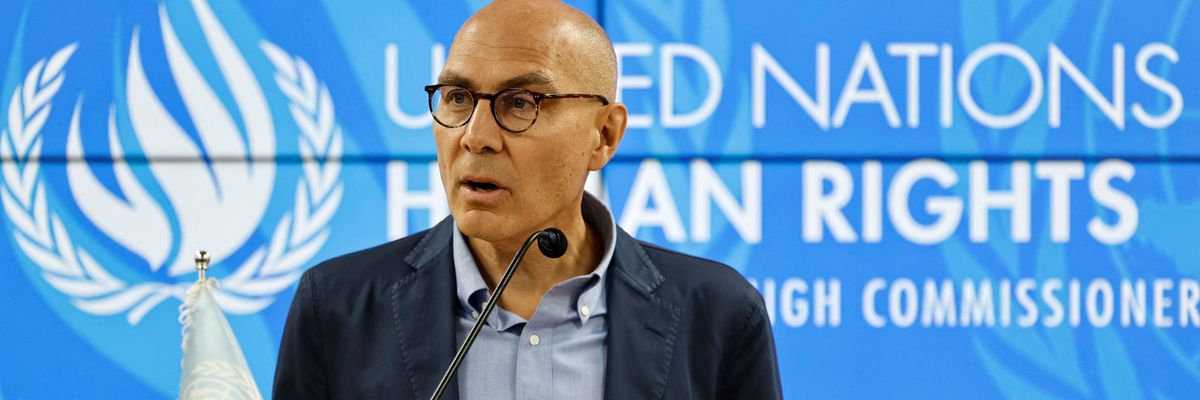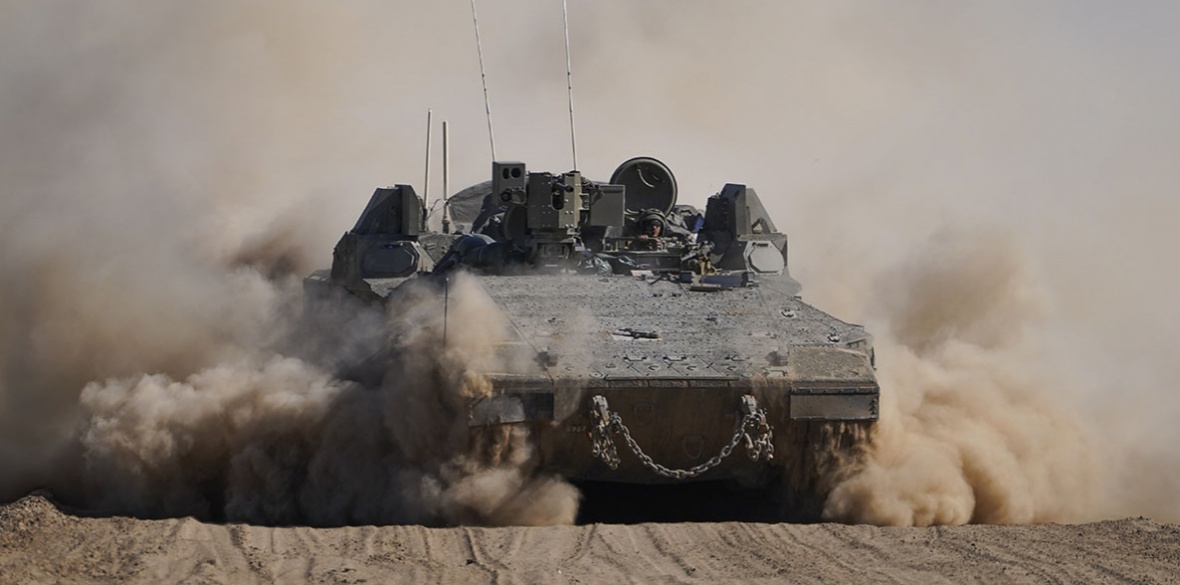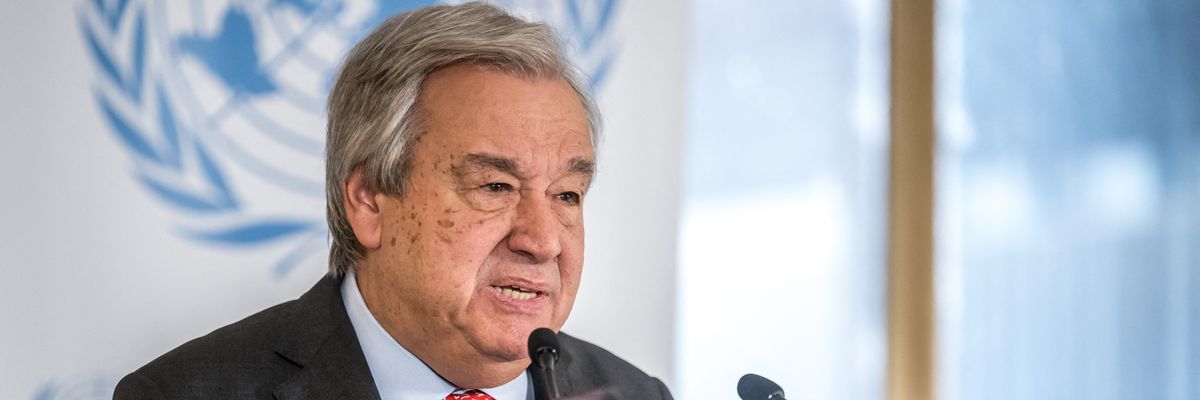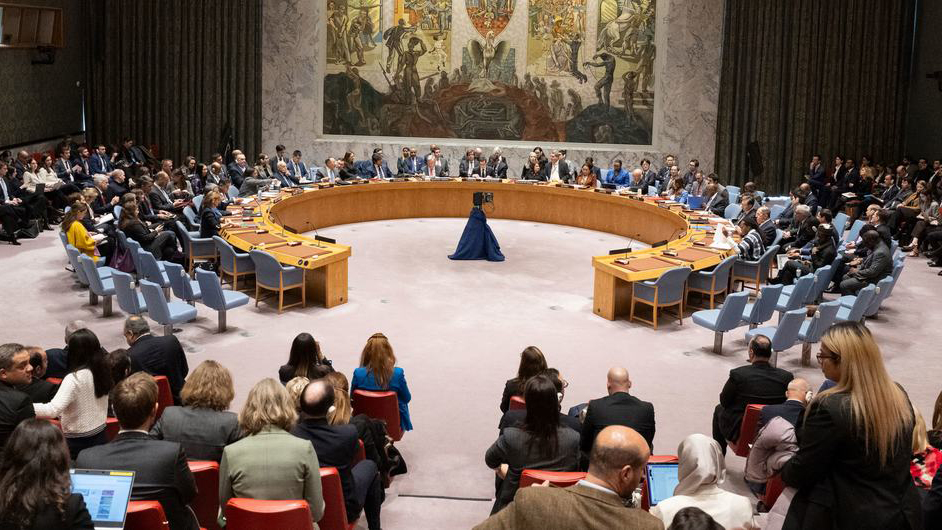UN Human Rights Chief Decries ‘War Crime’ of Rapidly Expanding Israeli Settlements
Original article by BRETT WILKINS republished from Common Dreams under Creative Commons (CC BY-NC-ND 3.0).

“The West Bank is already in crisis. Yet, settler violence and settlement-related violations have reached shocking new levels, and risk eliminating any practical possibility of establishing a viable Palestinian state.”
The United Nations human rights chief on Friday condemned the record expansion of illegal Israeli apartheid settlements in the occupied West Bank including East Jerusalem and the “dramatic increase” in violence against Palestinians by Israeli occupation forces and settlers, developments that are occurring while the world’s attention is focused on the Gaza genocide.
“Reports this week that Israel plans to build a further 3,476 settler homes in Maale Adumim, Efrat, and Kedar fly in the face of international law,” U.N. High Commissioner for Human Rights Volker Türk said in a statement responding to the far-right Israeli government’s latest settlement expansion scheme.
Türk submitted a report to the U.N. Human Rights Council affirming that Israel is violating the Fourth Geneva Convention by “effectively transferring the civilian population of Israel to the occupied territory while displacing the Palestinian population from their land.”
“Such transfers amount to a war crime that may engage the individual criminal responsibility of those involved,” the report states.
Both the occupation and settlements are illegal under international law. Israel conquered the West Bank, Gaza, and the Golan Heights in Syria in 1967 and has occupied the territories ever since. Although Israeli troops withdrew from Gaza and dismantled Jewish settlements there in 2005, Israel maintains a crippling physical and economic stranglehold that has become a total siege since October 7, when the government of Prime Minister Benjamin Netanyahu launched a genocidal war in response to Hamas-led attacks.
The U.N. report notes that approximately 24,300 new homes in existing Israeli settlements in the West Bank were advanced between November 2022 to the end of October 2023, “the highest on record since monitoring began in 2017.”
According to the publication:
The policies of the current government of Israel appear aligned, to an unprecedented extent, with the goals of the Israeli settler movement to expand long-term control over the West Bank, including East Jerusalem, and to steadily integrate this occupied territory into the state of Israel…
During the reporting period, there was a dramatic increase in the intensity, severity, and regularity of Israeli settler violence against Palestinians, which is accelerating the displacement of Palestinians from their land, in circumstances that may amount to forcible transfer. This violence further spiked following the attacks on October 7, 2023.
“The West Bank is already in crisis. Yet, settler violence and settlement-related violations have reached shocking new levels, and risk eliminating any practical possibility of establishing a viable Palestinian state,” said Türk.
According to the report, Israeli occupation forces and settlers have killed at least 413 Palestinians—including 107 children—while wounding more than 4,600 others in the West Bank since October 7. Palestinians killed 15 Israelis including four soldiers in the occupied territories during the same period.
In one of the most recent incidents, Israeli troops fatally shot 10-year-old Amr Mohammad Ghaleb Najar in the head while he sat in the front seat of his father’s car with his younger brother as they drove through the village of Burin on Monday. Soldiers then opened fire on Palestinians trying to rescue the child, wounding two other people.
Israeli Finance Minister Bezalel Smotrich, who also heads the Civil Administration—the governing body in the occupied territories—said this week that 18,515 new housing units have been approved in the settlements over the past year.
“The enemies try to harm and weaken us, but we will continue to build and be built up in this land,” the far-right minister said on social media.
The administration of U.S. President Joe Biden, which has sanctioned a handful of extremist settlers, last month reversed a Trump-era policy shift under which the United States no longer officially viewed Israeli settlements as illegal. The U.S. State Department first declared the settlements unlawful in 1978.
“Our administration maintains a firm opposition to settlement expansion,” U.S. Secretary of State Antony Blinken said last month. “And in our judgment, this only weakens—it doesn’t strengthen—Israel’s security.”
Original article by BRETT WILKINS republished from Common Dreams under Creative Commons (CC BY-NC-ND 3.0).




